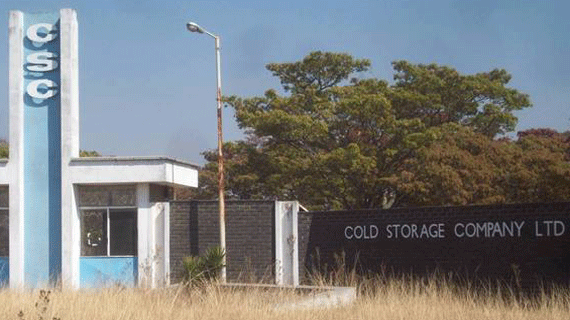
THE closure of some industries in Bulawayo has been blamed on the fast track land reform programme that contributed to the deterioration of Zimbabwe’s food security.
SILAS NKALA STAFF REPORTER
Policy analyst, Butler Tambo, said Bulawayo’s industry was agro-based and the government’s chaotic land reform programme collapsed it as crops could no longer be produced in good quantities by the new farmers that took over the land post-2000.
“For instance, interlinkages between the sectors, especially between agriculture and manufacturing, were decimated through the fast track land reform programme, which began a worsening disarticulation of the economy and wrenching structural changes that will have far reaching consequences for recovery,” Tambo said.
He said, for instance, the largest bumper harvest recorded in Zimbabwe after independence was 2,8 million tonnes of maize in 1981 followed by 2,7 million tonnes in 1985.
He said maize production declined sharply following implementation of the land reform programme from 2,1 million tonnes in 2000 to 1,5 million tonnes in 2001 and 500 000 tonnes in 2002.
“The highest wheat production was 325 000 tonnes in 1990, but this declined from 2000 due to the displacement of commercial farmers. Large scale commercial farmers with most of the irrigation infrastructure were the main producers of wheat,” he said.
He lamented the collapse of the country’s 2 760km rail system operated by the National Railways of Zimbabwe (NRZ). The rail system has an estimated capacity to move 18 million tonnes of goods per year, although a significant proportion of this capacity is no longer available.
- Chamisa under fire over US$120K donation
- Mavhunga puts DeMbare into Chibuku quarterfinals
- Pension funds bet on Cabora Bassa oilfields
- Councils defy govt fire tender directive
Keep Reading

This was attributed to many years of failure to carry out scheduled maintenance, rehabilitation and replacement of old and obsolete equipment. The mainline locomotive fleet, the DE10A is now beyond its designed economic lifespan.
“The electric locomotives are no longer operating since the decommissioning of the electrified section and this has put a further strain on the diesel locomotive classes which must be used as substitutes. The DE11A locomotive fleet is unfortunately made up of 13 units only and is left with six years before the end of its designed economic lifespan. Useful life of locomotives is 25 years. Only 13 of the 168 locomotives are within the lifespan with six years remaining,” Tambo said.
NRZ owns about 8 682 wagons. Only 3 427 are operational. It also owns a fleet of 309 coaches, but only 130 are in service and are in a deplorable and unsafe state.
“The railway network system needs fundamental and extensive rehabilitation in all its aspects. It will never be possible to have an industrial economy without a functioning railway system, both for the movement of goods and raw materials as well as processed industrial goods, in addition to transportation of people. The transportation of bulky goods by road has made it very expensive to move goods therefore rendering Zimbabwean goods uncompetitive as compared to regional goods and services,” Tambo said.
“In 1992 NRZ had a staff compliment of more than 12 000 with one general manager and two deputies. The company’s staff compliment now stands at 8 000 comprising a general manager, five directors, three area managers and five army personnel at director level, but this labour force is excessive compared to NRZ’s current levels of business.”
Tambo said the road network is in an appalling state and this was affecting business. He also called for the recapitalisation of the Cold Storage Company (CSC).
“CSC was the largest meat marketing organisation in Africa, handling up to 150 000 tonnes of beef and its associated byproducts a year. In 1984 it handled a record 700 000 heads and put some 250 000 heads on the ranches to save them from death during the severe drought of that year,” Tambo sdaid.
He challenged the government to revive agro-based industry.










